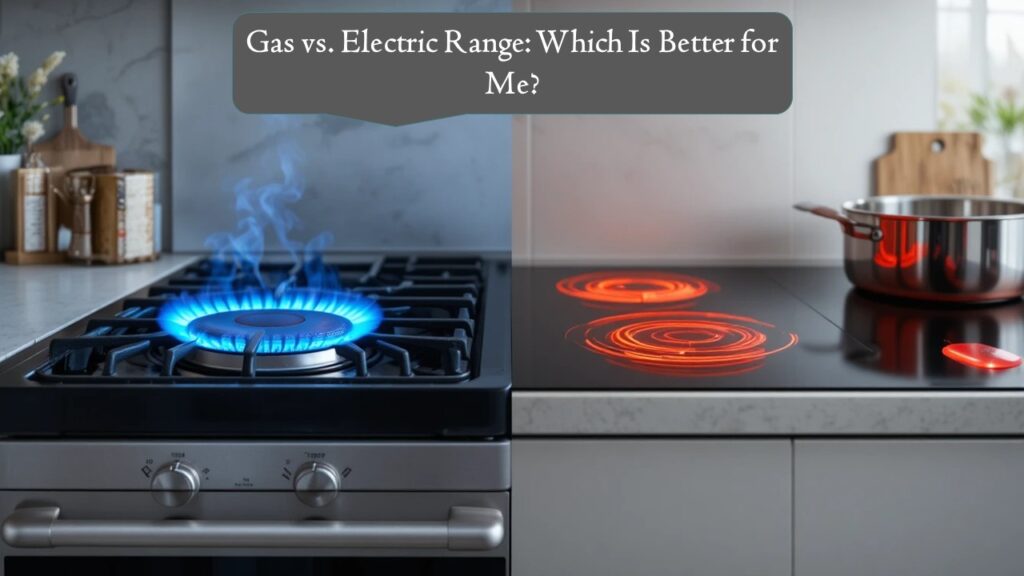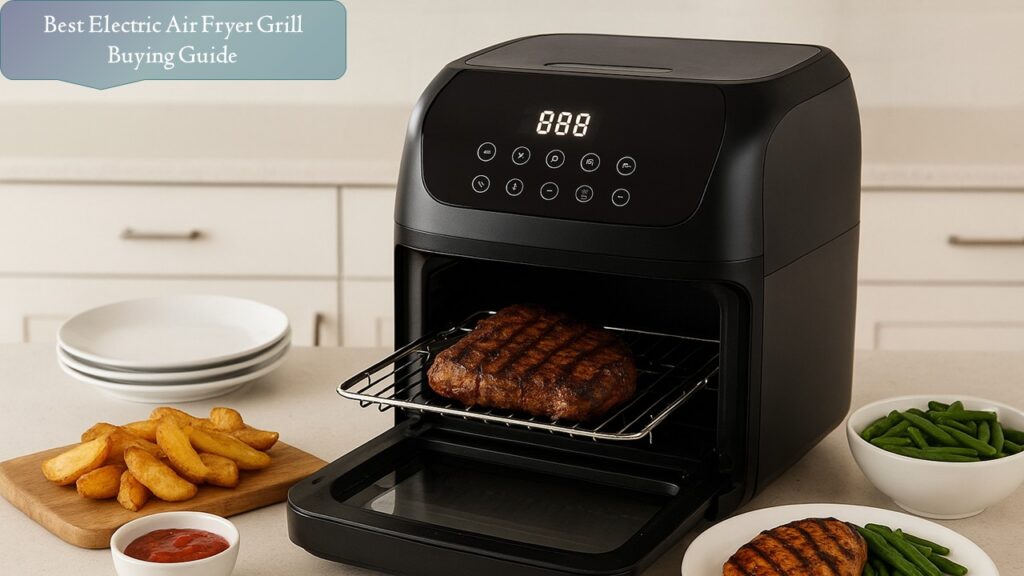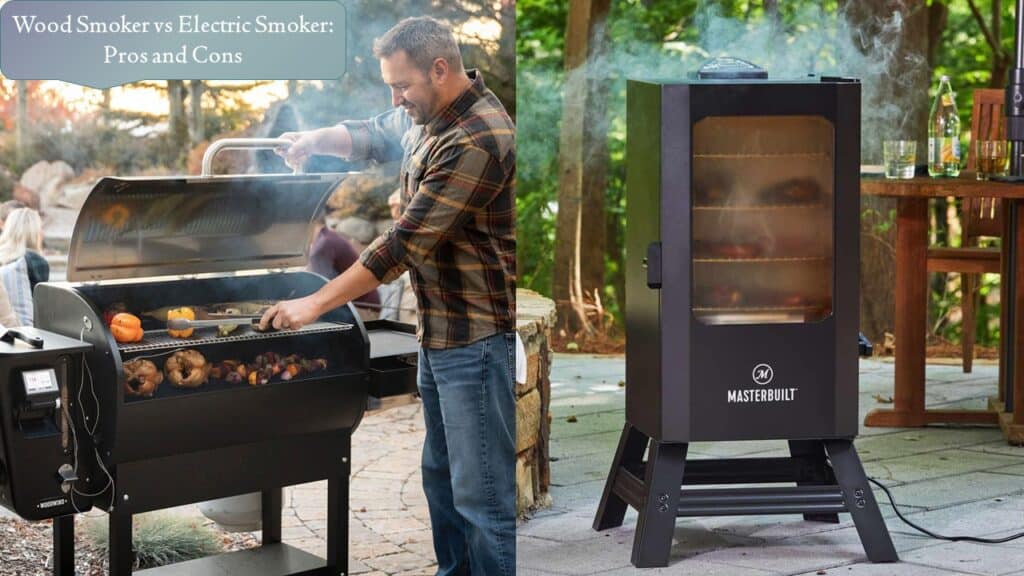Choosing between a gas and an electric range is one of the most important kitchen decisions you’ll make. Both options have loyal fans and unique strengths, and the best choice ultimately depends on your cooking style, budget, and home setup.
If you’ve ever wondered whether the quick control of gas is worth the installation cost — or if the sleek precision of electric ranges is better for your lifestyle — this guide will help you make the right choice.
Let’s break down the pros, cons, and performance factors to help you decide which range truly fits your kitchen.
Understanding the Basics: Gas vs. Electric Range
A gas range uses natural gas or propane to produce a live flame for cooking. It allows instant heat adjustment and is often preferred by professional chefs for its responsiveness.
An electric range, on the other hand, uses heated coils or smooth glass tops powered by electricity. It provides steady, even heat and is easier to clean and maintain.
Both types come in freestanding, slide-in, and professional models — but the way they cook, cost, and perform can differ significantly.
- 【Versatile】We offer a high-efficiency three-burner gas range stove with a built-in 1.24 cu.ft. large capacity oven,...
- POWERFUL 5-BURNER INDUCTION COOKTOP:This 36-inch electric cooktop comes with five powerful burners (3000W, 3000W,...
Key Differences Between Gas vs Electric Ranges
| Feature | Gas Range | Electric Range |
| Heat Source | Natural gas or propane flame | Electric coils or glass-top elements |
| Temperature Control | Instant heat adjustment | Slower to heat and cool down |
| Cooking Style | Ideal for searing and stir-frying | Great for baking and simmering |
| Installation | Requires gas hookup | Requires 240V electrical outlet |
| Operating Cost | Lower (depends on gas prices) | Higher (depends on electricity rates) |
| Maintenance | Requires cleaning burners | Easier to clean, especially glass tops |
| Safety | Open flame can pose a risk | Generally safer and cooler to touch |
| Aesthetic Options | Classic, commercial look | Sleek, modern finish |
Performance Comparison: Gas vs. Electric
Let’s take a closer look at how each range performs in real-world cooking situations.
-
Heating and Temperature Control
One of the biggest differences is heat control.
With gas ranges, you get instant temperature changes — simply turn the knob and the flame adjusts immediately. This makes it easier to simmer delicate sauces or sear meat precisely.
Electric ranges, however, take longer to heat up and cool down. But they deliver consistent, even heat, which is ideal for slow-cooking or baking.
If you cook meals that require quick temperature shifts, gas is better. If your cooking style favors precision and steady heat, electric may suit you more.
- 【Versatile】We offer a high-efficiency three-burner gas range stove with a built-in 1.24 cu.ft. large capacity oven,...
- POWERFUL 5-BURNER INDUCTION COOKTOP:This 36-inch electric cooktop comes with five powerful burners (3000W, 3000W,...
-
Cooking Performance
Gas ranges shine when it comes to high-heat cooking — think stir-frying, searing steaks, or roasting vegetables. The flame’s direct contact with the pan makes it easier to achieve crisp textures and fast cooking results.
Electric ranges, especially those with smooth ceramic tops, are perfect for even cooking and baking consistency. They maintain a steady temperature inside the oven, leading to better cakes, breads, and casseroles.
-
Oven Results
Gas ovens often have slightly uneven heat distribution because the burner sits at the bottom, which can cause hotspots. However, modern gas ranges now come with convection fans to fix that issue.
Electric ovens provide more consistent baking temperatures and are usually better for desserts and pastries.
So, for avid bakers, electric wins. For versatile cooks who use both stovetop and oven cooking, gas might still be the better all-rounder.
- 【Versatile】We offer a high-efficiency three-burner gas range stove with a built-in 1.24 cu.ft. large capacity oven,...
- POWERFUL 5-BURNER INDUCTION COOKTOP:This 36-inch electric cooktop comes with five powerful burners (3000W, 3000W,...
-
Installation Requirements
Installation can be a deciding factor.
A gas range needs a natural gas line (or propane tank) and proper ventilation. If your kitchen doesn’t already have a gas connection, installation costs can increase significantly.
An electric range just requires a 240-volt outlet, which most modern kitchens already have.
If you’re remodeling or moving into a new home, it’s worth checking your utility setup before choosing a model.
-
Energy Efficiency and Cost
Gas is generally cheaper to operate than electricity, depending on local utility rates. However, electric ranges are often more energy efficient, as nearly all the power goes directly to heating the element.
Electric models with induction technology are even more efficient, heating cookware directly without wasting energy.
In the long run, gas ranges usually have a lower operational cost, while electric ranges may have a higher upfront efficiency but depend heavily on electricity prices in your area.
- 【Versatile】We offer a high-efficiency three-burner gas range stove with a built-in 1.24 cu.ft. large capacity oven,...
-
Maintenance and Cleaning
Cleaning a gas range can be a bit more work. You’ll need to remove burner grates and drip trays, which can accumulate grease.
Electric ranges, especially smooth-top models, are easier to wipe clean. Just wait for the surface to cool, and a quick wipe-down restores its shine.
If easy maintenance is a top priority, electric ranges are more convenient.
-
Safety Considerations
Gas ranges use open flames, so there’s a slight risk of gas leaks or burns. Proper ventilation is a must, and you should always ensure the flame goes out completely when not in use.
Electric ranges eliminate that risk, but their glass surfaces can stay hot for a while after cooking.
If you have kids or want a safer, flame-free kitchen, electric ranges have the edge.
- POWERFUL 5-BURNER INDUCTION COOKTOP:This 36-inch electric cooktop comes with five powerful burners (3000W, 3000W,...
-
Aesthetic Appeal and Modern Features
Gas ranges give your kitchen a professional, traditional look — great for those who enjoy hands-on cooking.
Electric ranges, especially induction or smooth-top designs, look sleek and modern, blending seamlessly into contemporary kitchens. They often come with digital controls, touch panels, and smart connectivity features like Wi-Fi monitoring or app-based preheating.
AMZCHEF Gas Range
- 【Versatile】We offer a high-efficiency three-burner gas range stove with a built-in 1.24 cu.ft. large capacity oven,...
Pros:
- Instant temperature control
- Great for high-heat cooking
- Cheaper long-term operating costs
- Works during power outages
Cons:
- Requires gas line installation
- Harder to clean
- Potential gas leak risk
Electric Range Oven with 5 Cooktop
- POWERFUL 5-BURNER INDUCTION COOKTOP:This 36-inch electric cooktop comes with five powerful burners (3000W, 3000W,...
Pros:
- Even heating and baking performance
- Easier to clean
- Safer and more modern design
- More smart features available
Cons:
- Slower heat response
- Won’t work during power outages
- Higher long-term energy costs (depending on rates)
My Take and Recommendation:
After testing both types over time, I’ve found gas ranges unbeatable for everyday cooking control and quick heating. I love being able to instantly adjust the flame for delicate dishes or searing meat.
That said, electric ranges — particularly induction cooktops — have grown impressively powerful and precise. They’re cleaner, safer, and visually sleek, especially for modern kitchens.
If you love traditional cooking and already have a gas connection, go with gas.
If you prioritize easy cleaning, baking performance, and safety, electric is the smarter long-term choice.
Ultimately, both options deliver excellent results — it just comes down to your personal cooking habits and kitchen setup.
Final Thoughts:
In the debate of gas vs. electric ranges, there’s no absolute winner — only the right fit for you.
- Choose gas if you want instant heat control, lower energy costs, and that classic cooking feel.
- Choose electric if you value convenience, safety, and modern technology.
Whichever you choose, investing in a high-quality range will make cooking easier, faster, and far more enjoyable — and that’s what truly matters in every kitchen.









